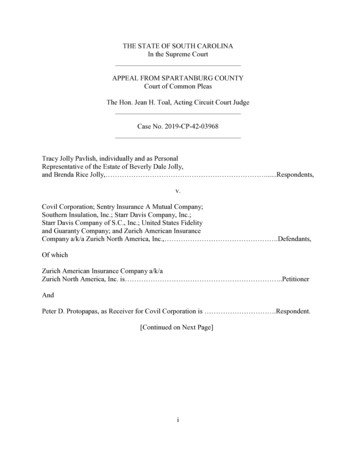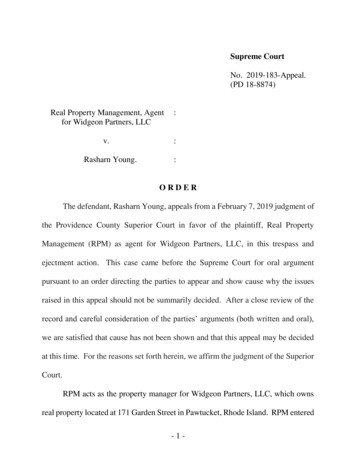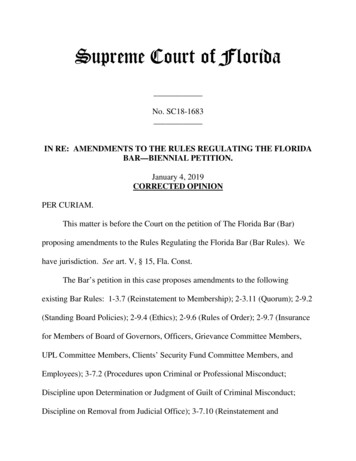
Transcription
Supreme Court of FloridaNo. SC18-1683IN RE: AMENDMENTS TO THE RULES REGULATING THE FLORIDABAR—BIENNIAL PETITION.January 4, 2019CORRECTED OPINIONPER CURIAM.This matter is before the Court on the petition of The Florida Bar (Bar)proposing amendments to the Rules Regulating the Florida Bar (Bar Rules). Wehave jurisdiction. See art. V, § 15, Fla. Const.The Bar’s petition in this case proposes amendments to the followingexisting Bar Rules: 1-3.7 (Reinstatement to Membership); 2-3.11 (Quorum); 2-9.2(Standing Board Policies); 2-9.4 (Ethics); 2-9.6 (Rules of Order); 2-9.7 (Insurancefor Members of Board of Governors, Officers, Grievance Committee Members,UPL Committee Members, Clients’ Security Fund Committee Members, andEmployees); 3-7.2 (Procedures upon Criminal or Professional Misconduct;Discipline upon Determination or Judgment of Guilt of Criminal Misconduct;Discipline on Removal from Judicial Office); 3-7.10 (Reinstatement and
Readmission Procedures); 3-7.11 (General Rules of Procedure); 4-1.2 (Objectivesand Scope of Representation); 4-1.5 (Fees and Costs for Legal Services); 4-1.10(Imputation of Conflicts of Interest; General Rule); 4-1.19 (Collaborative LawProcess in Family Law); 4-5.8 (Procedures for Lawyers Leaving Law Firms andDissolution of Law Firms); 4-6.5 (Voluntary Pro Bono Plan); 4-8.3 (ReportingProfessional Misconduct); 6-1.2 (Public Notice); 6-10.3 (Minimum ContinuingLegal Education Standards); 14-6.1 (Binding Nature; Enforcement; and Effect ofFailure to Pay Award); 14-7.1 (Immunity and Confidentiality); 18-1.2(Definitions); 20-3.1 (Requirements for Registration); 20-5.2 (Duty to Update); 206.1 (Generally); 20-8.3 (Complaint Processing); and 20-8.6 (Disposition ofComplaints). Additionally, the Bar proposes deleting Bar Rules 2-9.8 (PracticeResource Institute) and 3-7.15 (Amendments) in their entirety because they areduplicative of subdivisions of other Bar Rules. The proposals were approved bythe Board of Governors and formal notice of the proposed amendments waspublished in The Florida Bar News, which invited comments from interestedparties. No comments were received.After having fully considered the Bar’s petition, we adopt most of theamendments as proposed by the Bar and delete rules 2-9.8 and 3-7.15 in theirentirety, as proposed by the Bar. However, as discussed below, we decline to-2-
adopt portions of the amendments proposed to rule 3-7.2, and we adopt modifiedamendments to rule 20-3.1. We discuss the more significant amendments below.First, we amend Bar Rule 1-3.7 to increase the required number ofcontinuing legal education hours in subdivision (c) for retired or delinquentattorneys seeking reinstatement from ten to eleven hours for each year or partialyear of retirement or delinquency. Subdivision (g)(2) is also amended to requireinactive members who are seeking reinstatement to complete thirty-three hours ofcontinuing legal education, rather than thirty hours. These changes are madefollowing this Court’s opinion in In re Amendments to Rules Regulating theFlorida Bar 4-1.1 & 6-10.3, 200 So. 3d 1225 (Fla. 2016), in which the three-yearcontinuing legal education requirement was increased from thirty hours to thirtythree hours.Next, we amend Bar Rules 2-3.11, 2-9.2, and 2-9.6 to allow the Bar, anddivisions thereof, to conduct electronic meetings. Specifically, Bar Rule 2-3.11 isrenamed to “Electronic Meetings” and is rewritten to explicitly allow the Bar anddivisions thereof to conduct electronic meetings. The title of Bar Rule 2-9.2 isamended to read “Adoption, Amendment, and Waiver of Standing Board Policiesand Rules of Order,” and the text of the rule is amended to provide that in additionto standing board policies, the Board of Governors may adopt “special rules oforder governing parliamentary procedures.” The text of Bar Rule 2-9.6 is amended-3-
to provide that Robert’s Rules of Order is the parliamentary authority that governsmeetings of the Bar to the extent that it does not conflict with any standing boardpolicies or special rules of order; if there is a conflict, the standing board policiesor special rules of order will control.We next amend Bar Rule 3-7.2 to make clear that it is an attorney’s duty toreport pending criminal charges and any judgment thereon to the Bar. Severalsubdivisions throughout the rule are rewritten for readability and to make clear theduties imposed by the rule, and upon whom those duties are imposed. However,we decline to adopt the Bar’s proposed amendment to subdivision (f) that wouldmake discretionary the Bar’s now-mandatory duty to file a Notice ofDetermination or Judgment of Guilt with the Court upon discovery that an attorneyhas been adjudicated guilty of a felony. Although the Bar expresses concern overhaving no discretion in cases involving a finding of guilt of a felony that requiresno intent because the rule provides for the automatic interim suspension of theattorney, we find that the seriousness of having been found guilty of a felonyoffense militates in favor of this Court retaining the ability to review thecircumstances surrounding the finding of guilt. Accordingly, we decline to adoptthe Bar’s proposed amendment in this regard. We note, however, that any concernthat a sanction resulting from having been found guilty of a felony offense thatrequires no intent will be too severe is addressed by the procedures already present-4-
in the rule; subdivision (h) provides that the matter will be referred to a refereewho can make a recommendation to the Court as to the appropriate sanction for theattorney’s conduct, which the Court considers in imposing the final discipline.We next amend subdivision (f)(4)(B) of Bar Rule 3-7.10 to make clear thatattorneys seeking reinstatement that are required under that subdivision tocomplete the Florida bar examination or a portion thereof must have proof ofhaving passed the required portions of the examination prior to filing a petition forreinstatement under that rule.Additionally, we amend subdivision (h) within Bar Rule 4-1.5 to replace theprovision that “[n]o higher fee shall be charged and no additional charge shall beimposed by reason of a lawyer’s or law firm’s participation in a credit plan” with astatement that “[l]awyers may charge clients the actual charge the credit planimposes on the lawyer for the client’s transaction.” By so doing, we hereby allowlawyers to pass on the actual costs resulting directly from a client’s choice to pay abill or invoice with a credit card, or make payments under a credit plan, to thatclient.We next amend Bar Rule 6-10.3 to require that one of the five credit hoursof continuing legal education per three-year reporting cycle that is required toconcern legal ethics, professionalism, bias elimination, substance abuse, or mentalillness awareness must concern professionalism. Additionally, we amend the-5-
definition of “supervising lawyer” contained in Bar Rule 18-1.2(c) to make clearthat a supervising lawyer under that rule must be “eligible to practice law inFlorida.”Next, we amend various rules governing the Florida Registered ParalegalProgram. First, we amend Bar Rule 20-3.1 to create an additional category ofindividuals who may become Florida Registered Paralegals; however, we modifythe language proposed by the Bar to create the category for those with “a jurisdoctorate degree from an American Bar Association accredited institution andmembership in good standing with a state bar association other than Florida’s, withno minimum paralegal work experience.” We also amend Bar Rule 20-5.2 toprovide that the Bar will notify a registered paralegal’s supervising or employingattorney of any changes to the paralegal’s registration status. Further, we amendBar Rule 20-6.1 to increase the continuing education requirement for registeredparalegals from thirty hours every reporting cycle to thirty-three hours, andrequiring three of those hours to concern technology. Additionally, we increasethe number of continuing education hours required for re-registering afterresigning or having one’s registration revoked from ten hours to eleven. Theseincreases are consistent with recent increases that we have made with regard torequired continuing legal education requirements for lawyers. Last, we amendsubdivision (e) of Bar Rule 20-8.3 to require a registered paralegal to notify the-6-
supervising attorney if a complaint has been filed against the paralegal pursuant tothat rule.Finally, we delete two rules in their entirety because they are duplicative ofprovisions found elsewhere in the rules. Bar Rule 2-9.8 is deleted as duplicative ofBar Rule 2-3.2(d)(7). Additionally, Bar Rule 3-7.15 is deleted as duplicative ofBar Rule 1-12.1(f).Accordingly, the Court adopts the amendments to the Rules Regulating theFlorida Bar as set forth in the appendix to this opinion. Deletions are indicated bystruck-through type, and new language is indicated by underscoring. Thecomments are offered for explanation and guidance only and are not adopted as anofficial part of the rules. The amendments shall become effective on March 5,2019.It is so ordered.CANADY, C.J., and PARIENTE, LEWIS, QUINCE, POLSTON, LABARGA,and LAWSON, JJ., concur.NO MOTION FOR REHEARING WILL BE ALLOWED.Original Proceeding – Rules Regulating The Florida BarJoshua E. Doyle, Executive Director, Michelle R. Suskauer, President, JohnStewart, President-Elect, Lori S. Holcomb, Director, Division of Ethics andConsumer Protection, and Elizabeth Clark Tarbert, Ethics Counsel, The FloridaBar, Tallahassee, Florida,for Petitioner-7-
APPENDIXCHAPTER 1 GENERAL1-3 MEMBERSHIPRULE 1-3.7 REINSTATEMENT TO MEMBERSHIP(a) Eligibility for Reinstatement. Members who have retired or beendelinquent for a period of time not in excess of 5 years are eligible forreinstatement under this rule. Time will be calculated from the day of theretirement or delinquency.Inactive members may also seek reinstatement under this rule.(b) Petitions Required. A member seeking reinstatement must file a petitionwith the executive director setting forth the reason for inactive status, retirement,or delinquency and showing good cause why the petition for reinstatement shouldbe granted. The petitioner must include all required information on a formapproved by the board of governors. The petition must be accompanied by anonrefundable reinstatement fee of 150 and payment of all arrearages unlessadjusted by the executive director with concurrence of the executive committee forgood cause shown. Inactive members are not be required to pay the reinstatementfee. No member will be reinstated if, from the petition or from investigationconducted, the petitioner is not of good moral character and morally fit to practicelaw or if the member is delinquent with the continuing legal education or basicskills course requirements.If the executive director is in doubt as to approval of a petition, the executivedirector may refer the petition to the board of governors for its action. Action ofthe executive director or board of governors denying a petition for reinstatementmay be reviewed on petition to the Supreme Court of Florida.(c) Members Who Have Retired or Been Delinquent for Less Than 5Years, But More Than 3 Years. Members who have retired or been delinquentfor less than 5 years, but more than 3 years, must complete 1011 hours ofcontinuing legal education courses for each year or portion of a year that themember had retired or was deemed delinquent.(d) Members Who Have Retired or Been Delinquent for 5 Years or More.Members who have retired or have been deemed delinquent for a period of 5 yearsor longer will not be reinstated under this rule and must be readmitted uponapplication to the Florida Board of Bar Examiners and approval by the SupremeCourt of Florida.-8-
(e) Members Who Have Permanently Retired. Members who havepermanently retired will not be reinstated under this rule.(f) Members Delinquent 60 Days or Less. Reinstatement from delinquencyfor payment of membership fees or completion of continuing legal education orbasic skills course requirements approved within 60 days from the date ofdelinquency is effective on the last business day before the delinquency. Anymember reinstated within the 60-day period is not subject to disciplinary sanctionfor practicing law in Florida during that time.(g) Inactive Members. Inactive members may be reinstated to activemembership in good standing to become eligible to practice law in Florida bypetition filed with the executive director, in the form and as provided in (b) above,except:(1) If the member has been inactive for greater than 5 years, has beenauthorized to practice law in another jurisdiction, and either actively practicedlaw in that jurisdiction or held a position that requires a license as a lawyer forthe entire period of time, the member will be required to complete the FloridaLaw Update continuing legal education course as part of continuing legaleducation requirements.(2) If the member has been inactive for greater than 5 years and does notmeet the requirements of subdivision (1), the member will be required tocomplete the basic skills course requirement and the 30-hour33-hourcontinuing legal education requirement.(3) An inactive member is not eligible for reinstatement until all applicablecontinuing legal education requirements have been completed and theremaining portion of membership fees for members in good standing for thecurrent fiscal year have been paid.CHAPTER 2 BYLAWS OF THE FLORIDA BAR2-3 BOARD OF GOVERNORSBYLAW 2-3.11 QUORUMELECTRONIC MEETINGSA majority of the members of the board of governors shall constitute a quorumfor the transaction of business at all meetings.Electronic meetings are authorizedfor all meetings of The Florida Bar; its board of governors; the executivecommittee and committees of its board of governors; and its sections, divisions,and committees. Special rules of order pertaining to the conduct of electronicmeetings may be adopted by the board of governors.-9-
2-9 POLICIES AND RULESBYLAW 2-9.2 ADOPTION, AMENDMENT, AND WAIVER OFSTANDING BOARD POLICIES AND RULES OF ORDERThe board of governors shallmay adopt standing board policies governing theinternal administration and operation and special rules of order governingparliamentary procedures of The Florida Bar and the board of governors. Theboard of governors may adopt, amend, or rescind standing board policies andspecial rules of order by a majority vote of the membership of the board ofgovernors provided any amendment to any standing board policy or special rulesof order shallis not be effective until 30 days after adoption or another datespecifically approved by the board of governors. Such standingStanding boardpolicies and special rules of order may be adopted, rescinded, or amended by amajority vote of those present at any regular meeting of the board of governorsprovided advance written notice is given to the members of the board of governorsof the proposed adoption, repeal, or amendment of any standing board policy orspecial rules of order. The provision of any standing board policy or special ruleof order may be waived by a two-thirds vote of those present at any regularmeeting of the board of governors.BYLAW 2-9.4 ETHICS(a) Rules of Procedure. The board of governors shall adopts rules ofprocedure governing the manner in which opinions on professional ethics may besolicited by members of The Florida Bar, issued by the staff of The Florida Bar orby the professional ethics committee, circulated or published by the staff of TheFlorida Bar or by the professional ethics committee, and appealed to the board ofgovernors of The Florida Bar.(b) Amendment. The adoption of, repeal of, or amendment to the rulesauthorized by subdivision (a) shall beis effective only under the followingcircumstances:(1) The proposed rule, repealer, or amendment shall beis approved by amajority vote of the board of governors at any regular meeting of the board ofgovernors.(2) The proposal thereafter shall beis published in The Florida BarNewsNews at least 20 days preceding the next regular meeting of the board ofgovernors.- 10 -
(3) The proposal shall thereafter receives a majority vote of the board ofgovernors at its meeting following publication as herein required.(c) Waiver. The rules of procedure adopted as required in subdivision (a)may be temporarily waived as to any particular matter only upon unanimous voteof those present at any regular meeting of the board of governors.(d) Confidentiality. Each advisory opinion issued by Florida Bar ethicscounsel shallwill be identified as a "staff opinion" and shall be available forinspection or production. The names and any identifying information of anyindividuals mentioned in a staff opinion shallwill be deleted before the staffopinion is released to anyone other than the member of The Florida Bar making theoriginal request for the advisory opinion.(e) Disqualification as AttorneyLawyer Due to Conflict.(1) Members of the Professional Ethics Committee (PEC), Members of theBoard of Governors, and Employees of The Florida Bar. No member of thePEC, the board of governors, or employee of The Florida Bar shall represent aparty other than The Florida Bar in proceedings for the issuance of opinions onprofessional ethics authorized under these Rules Regulating The Florida Bar.(2) Former Members of the PEC, Former Board Members, and FormerEmployees. No former member of the PEC, former member of the board ofgovernors, or former employee of The Florida Bar shall represent any partyother than The Florida Bar in proceedings for the issuance of opinions onprofessional ethics authorized under these rules if personally involved to anydegree in the matter while a member of the PEC, a member of the board ofgovernors, or an employee of The Florida Bar.A former member of the PEC, former member of the board of governors,or former employee of The Florida Bar who did not participate personally inany way in the matter or any related matter in which the attorney seeks to be arepresentative, and who did not serve in a supervisory capacity over suchmatter, shall not represent any party except The Florida Bar in proceedings forthe issuance of opinions on professional ethics authorized under these rules for1 year after such service without the express consent of the board.(3) Partners, Associates, Employers, or Employees of the Firms of PECMembers or Board of Governors Members Precluded From RepresentingParties Other Than The Florida Bar. Members of the firms of board ofgovernors members or PEC members shall not represent any party other than- 11 -
The Florida Bar in proceedings for the issuance of opinions on professionalethics authorized under these rules without the express consent of the board.(4) Partners, Associates, Employers, or Employees of the Firms of FormerPEC Members or Former Board of Governors Members Precluded FromRepresenting Parties Other Than The Florida Bar. Attorneys in the firms offormer board of governors members or former PEC members shall notrepresent any party other than The Florida Bar in proceedings for the issuanceof opinions on professional ethics authorized under these rules for 1 year afterthe former member's service without the express consent of the board.(1) Representation Prohibited. Lawyers may not represent any person orentity other than The Florida Bar in proceedings for the issuance of opinions onprofessional ethics authorized by these rules if they are:(A) currently serving on the professional ethics committee or the boardof governors;(B) employees of The Florida Bar; or(C) former members of the professional ethics committee, formermembers of the board of governors, or former employees of The FloridaBar if personally involved to any degree in the matter while a member ofthe professional ethics committee or the board of governors, or while anemployee of The Florida Bar.(2) Representation Permitted
Florida.” Next, we amend various rules governing the Florida Registered Paralegal Program. First, we amend Bar Rule 20-3.1 to create an additional category of individuals who may become Florida Registered Paralegals; however, we modify the language proposed
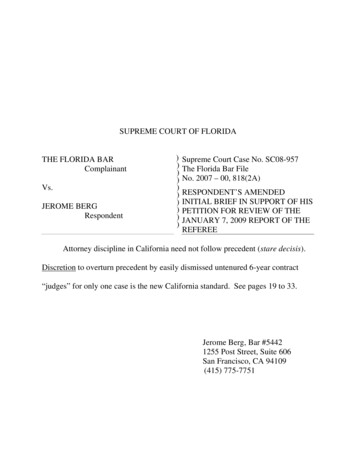
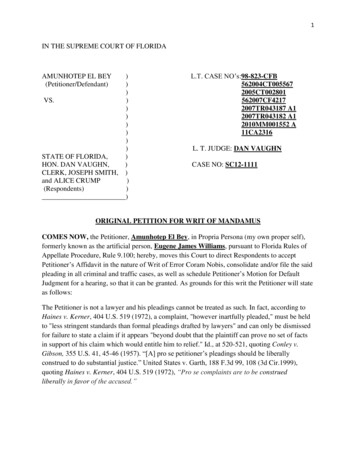
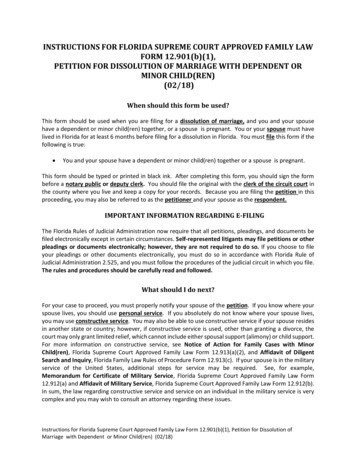
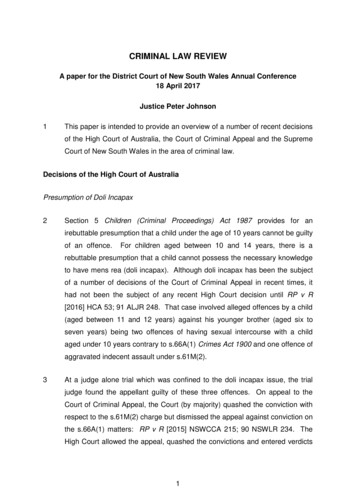
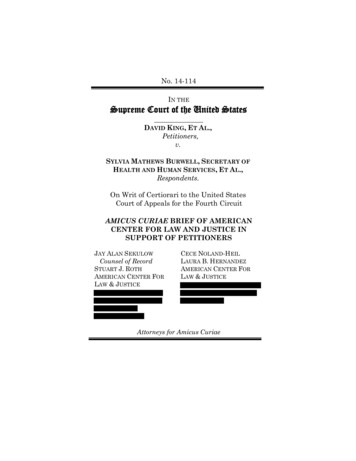
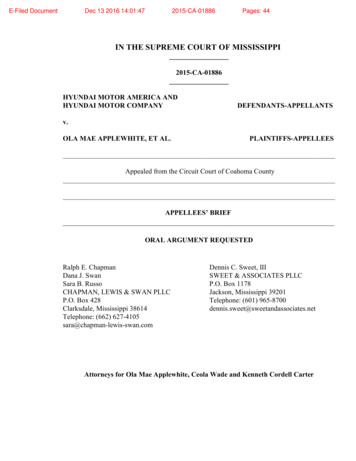
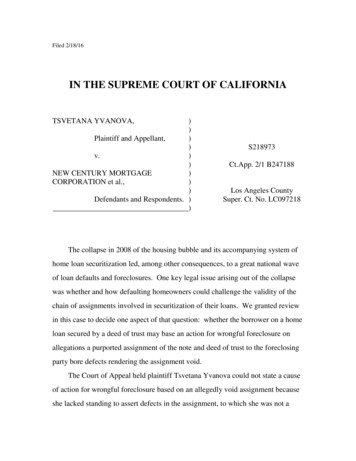
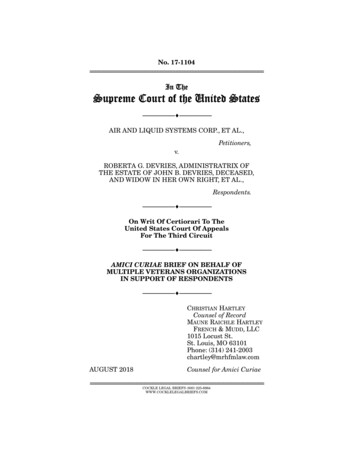
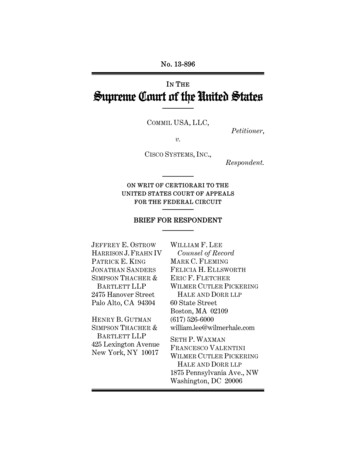
![IN THE SUPREME COURT OF T]-lE STATE OF MONTANA](/img/7/526b198c923f8.jpg)
